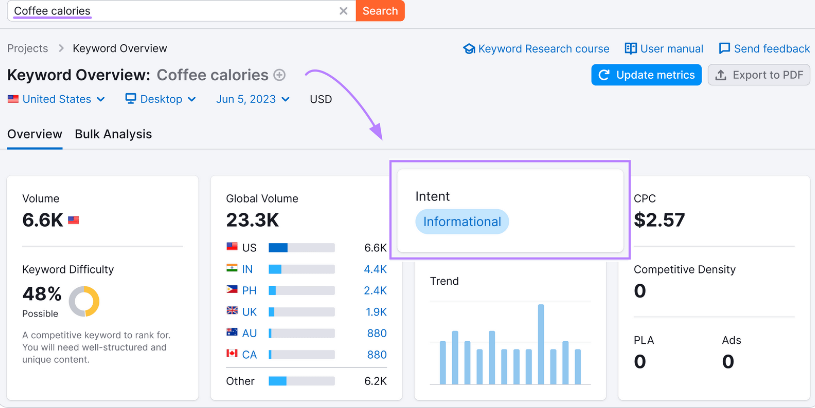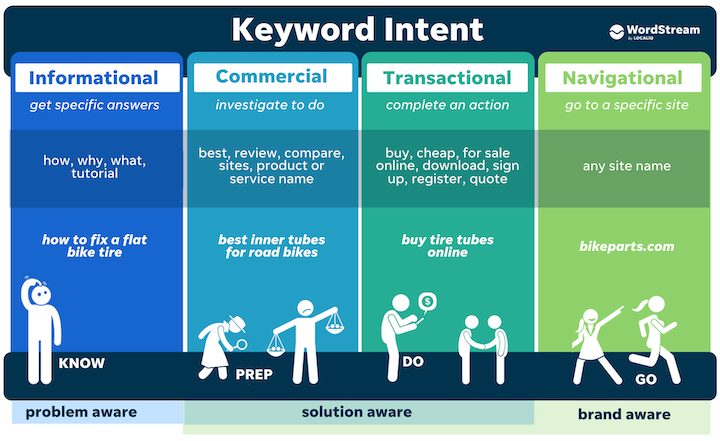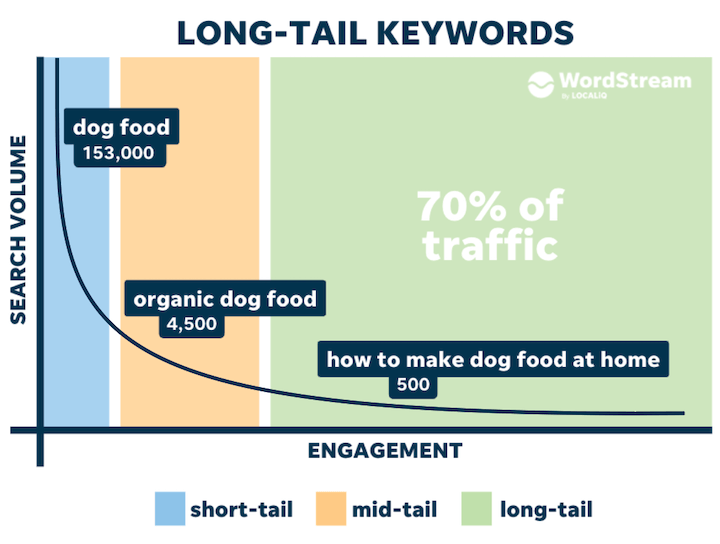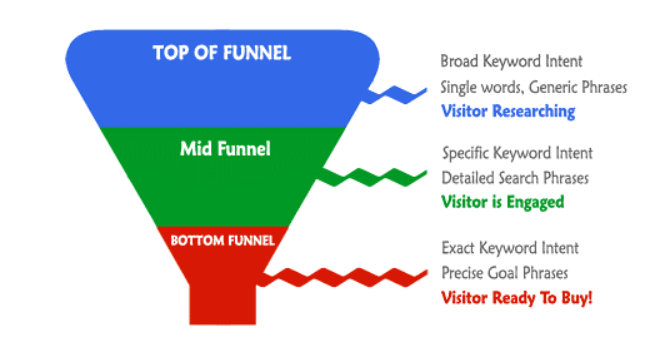If you’re like most people, you probably use search engines on a daily basis. And if you’re looking to improve your website’s ranking in those search results, then it’s important to focus on using informational keywords.
Why?
Because by providing searchers with the information they’re looking for, you’ll be more likely to get a click – and start a conversion.
So if you want your website to rank higher in search engine results, make sure to include informational keywords throughout your content.
Let’s talk about how to do it.
Table Of Contents:
- What Are Informational Keywords?
- Types of Informational Keywords
- What is Keyword Intent?
- How to Organize Keywords for Better Conversions
- Choosing the Right Informational Keywords to Target
- The Role of Informational Keywords in Content Marketing
- Informational Keywords and Social Media Marketing
- FAQs – Informational Keywords
- Conclusion
What Are Informational Keywords?
Informational keywords are words that help describe what a piece of information is about. They can be used to describe the topic of a piece of writing, the subject of a conversation, or the focus of a research project.
By providing keywords that describe the main ideas of a piece of information, informational keywords can help provide context and make it easier for others to find and understand. Often, but not always, these keywords are lower competition, meaning they’re easier to rank in the SERPs.

Screenshot from Semrush
Types of Informational Keywords
The world of informational keywords is vast and diverse, much like the wide array of questions people ask search engines every day. These keywords help us to understand user intent and provide answers that satisfy their queries.
One common type we encounter is search intent keywords. Search intent keywords reveal what a searcher wants to do with the information they’re seeking. For example, ‘how-to’ phrases often indicate a desire for step-by-step guidance or advice online.
We also have question keywords, which typically start with words such as “who,” “what,” “where,” “when,” or “why.” People use these when they want specific answers to direct questions. Understanding this can help content creators deliver precise responses that fulfill searchers’ needs.
Instructional keywords, on the other hand, signal users looking for tutorials or lessons on how to achieve something particular. The term ‘instructional’ hints at an educational element here: users hope not only to find solutions but also to learn from them in some way.
Advice keywords generally revolve around recommendations while inspiration keywords suggest exploratory searches where individuals are looking for new ideas or concepts. This knowledge helps marketers craft suitable content aimed at meeting the needs of their audience.
What is Keyword Intent?
The keyword intent of a phrase is what we predict to be the intent of a searcher looking for that exact term. What kind of information are they searching for when they type a keyword into Google’s search box? However, we can’t always be certain of this.
Understanding user keyword intent is critical to successful SEO. By matching your keywords and content to what users are searching for, you can increase the chances that they’ll click through to your site.
Before you can analyze your keywords, you have to look at the intent of the terms you’re targeting.
4 Types of Keyword Intent
There are 4 main types of keyword intent:
- Informational intent. The searcher is aware they have a problem and they’re looking for ways to solve it. They want specific answers on a specific topic.
- Commercial intent. The searcher is aware of what kinds of solutions exist for their problem or needs. That might include a product or service. Now they want to compare those solutions to find the best one.
- Transactional intent. The searcher is looking to complete an action — they’re ready to buy the solution they’ve decided on.
- Navigational intent. The searcher wants to navigate to a specific website or location on the web, but they don’t know the URL.

Screenshot from Wordstream
How to Identify Keyword Intent
Sometimes, it’s obvious what someone’s intent is when they search. For example, if they search for “buy”, they’re probably looking to buy something.
However, there may be some cases where the intent is not as clear. In these cases, it can be helpful to look at the searcher’s history or the context of the search.
Google has spent years trying to identify the intent of a user’s search query. You can pick up a few clues by searching for things on Google.
Essentially, Universal Search is an attempt by Google to figure out what users want and give it to them directly in the results.
These types of searches will most often be interpreted as “intent” by Google.
- “Quick-answer” search boxes are a good way to gauge users’ intentions.
- “People Also Ask” boxes also signify informational intent.
- Google’s shopping results are high-intent queries.
- Google’s local results are typically navigational queries.
How to Organize Keywords for Better Conversions
The first step to organizing your keywords is to sort them by user intention. This will help you create content that resonates with your target audience.
- Informational keywords: Informational search intent is pretty straightforward with informational keywords.
- Transactional keywords: Content that guides readers down the purchase funnel, such as a product list, a comparison guide, frequently asked questions, or a manual, are designed to meet transactional search intent queries.
- Commercial keywords: If you have a product or products that match, you can talk to your marketing team about how to optimize pages to rank for these searches. Otherwise, these can be lists of products or “Buy Now” pages that are directly tied to these specific keywords.
- Navigational keywords: Some keywords will have a “Buy Now” intent while others will have transactional intent (i.e. customers reviewing your products). Some of these should be handled through reputation management, while others should be managed by the sales team or customer service team. Most will be beneficial to more than one group.
Next, organize your keyword lists according to the required action.
- Some keyword ideas might be good as content for a new website or for creating new pages.
- Some keyword phrases can be used to optimize your existing web pages.
Organize your keywords by search type. For instance, queries for information and transactions may be better suited for different pages.
- Blog posts on seasonal products
- FAQ pages for navigational queries
- Glossary of complicated terms
- Content upgrades
You can organize the search terms in your spreadsheet by grouping them based on similar characteristics. You can sort them by intention, the required action taken, and the kind of page you will create. Essentially, this process is how you develop a keyword cluster.
Pro tip: BrandWell automatically groups your keywords into topic clusters with just one click, eliminating the need to manually organize your keywords on a spreadsheet.
Keyword research can take a while, but it’s essential for building brand awareness and increasing search visibility.
When planning out and creating your digital content, make sure you consider the user’s intention. This will help you create better, more targeted content that will appeal to your intended audience.
Now that your pages have a clear objective, they each have a purpose.
Focus on Targeting Long-Tail Informational Keywords
There are thousands of different search terms being searched every day, so trying to rank for popular keywords can be very expensive. Instead, consider targeting long-tail search phrases, which are less competitive and less expensive.
70% of daily search queries are long-tail keywords.
This field of long-tail keyword phrases makes up the bulk of all search queries, with billions of individual terms being searched daily.

Screenshot from Wordstream
Remember: Informational Searches Fall on Top of the Funnel
Once you have identified which of your keywords are for information and which are for transactions, you can organize your list into two separate groups. This helps you to create more relevant content for your users.
These informational, top-of-the-funnel inquiries usually include commonly asked questions that people have about a product.
These informative lines won’t necessarily lead to immediate sales but may help introduce your company to new clients and increase your website traffic.
For researching keywords, sites like UberSuggest and Quora are great places to look because these topics and questions are driven entirely by user demand.
Providing valuable content on popular topics that users are interested in is a great way to improve engagement on your site.

Screenshot from Wordstream
Choosing the Right Informational Keywords to Target
When I search for “china” in Google, how in the world does Google know I’m searching for plates and not the country?
When search engines try to decipher my search queries, they may indeed return results about China, the country, when I’m actually looking for information on tableware.
For this reason, context matters for keywords.
Targeting specific locations, times, and apps in your keywords and long-tail phrases can greatly increase your chances of reaching more users — especially those on mobile devices, whose searches are most often tied to place, time, and circumstance.
Today, context is king, and users expect that the content that they see online is relevant to them and their needs.
When coming up with your keywords, use what users are searching for and what they’re clicking on.
If you are targeting certain keywords through Google AdWords, understanding which search queries are preferred by searchers can help you reach more potential customers.
Setting up cross-device tracking will help you implement long-tail keywords for smarter bids.
Digital marketing is becoming more competitive than ever. The algorithms of search engines like Google are getting smarter, pushing digital marketing professionals to up their SEO game.
By targeting the right type of audience, creating great content, and optimizing your site for search engines, you can increase your ranking on SERPs and get more traffic to your website.
Choosing the right keywords can spell the difference between success and failure for your business.
Choose the Best Keywords with Contextual Signals
There are many contextual cues, such as time, location, and weather, that make it easy for marketers to cater their web copy to each visitor.
To stand out online, your business needs to take advantage of those buying signals from potential customers.
By optimizing your content for long-tail keyword phrases, you can target specific, detailed questions.
To truly connect and build relationships with your mobile users, it’s important to provide them with an experience that’s tailored to them, in an instant and answers their exact questions.
It’s not about getting a click on the specific keywords, but rather about what happens next.
Today, SEO is about creating content that answers the search intent of users. This often means writing blog posts that answer specific questions that searchers have.
For instance, a blog post on ‘how to start a small business‘ should give clear steps and offer practical advice, making it both engaging and informative.
The goal isn’t merely stuffing articles with words but integrating search phrases naturally into meaningful sentences while providing valuable insights aligned with users’ needs.
Now, with search engine algorithms being able to decipher the meaning behind the search, you can start a conversation once someone clicks through to your website from a search engine result page.
Beyond simply giving one answer to a prospect’s question, you want to form a positive relationship with them, not just provide an answer to their problem.
The Role of Informational Keywords in Content Marketing
When properly used in your content marketing strategy, informational keywords can significantly boost your brand’s visibility online, enhancing its reach amongst the target audience while improving search engine rankings.
When someone types in an informational keyword, they’re usually in research mode. They want answers, insights, or explanations. As a savvy SEO strategist, you’d want your content to pop up when these curious minds hit the search button.
Let’s say someone types “how to grow tomatoes indoors” into Google. If you’ve got a killer blog post or guide on that topic, optimizing it for relevant informational keywords increases the chances of your content showing up in search results.
These keywords help you connect with your audience at the right moment – when they’re hungry for knowledge. It’s like being a friendly neighborhood expert ready to provide valuable information.
So, when you’re crafting content for your website, sprinkle in those informational keywords that align with what your audience is seeking. It’s not just about ranking high; it’s about being the go-to source for information in your niche.
Different types of informational queries necessitate various forms of content to satisfy user intent effectively. For instance, if someone’s search intent revolves around learning how to do something (an instructional keyword), an actionable guide or tutorial would fit their needs best.
In contrast, when users ask specific questions or seek advice online (advice keywords), Q&A format posts can provide direct answers and useful insights. Similarly, creating comparison articles when people use keywords to compare products ensures we cater precisely to their commercial search intent.
Fitting Keywords into Your Strategy Naturally
An effective strategy includes naturally integrating informational keywords throughout your copy without disrupting readability.
Beyond simply inserting these phrases verbatim, consider using synonyms and variations as part of your SEO keyword strategy. This not only helps avoid redundancy but also casts a wider net for potential searches related to your topic – boosting both brand awareness and reach among your target audience.
Focusing on the right informational keywords helps build brand awareness by driving organic search traffic from users genuinely interested in your offerings. More importantly, it positions your content as an authoritative source of information – enhancing trust and engagement among your audience.
Optimizing Keywords with Informational Modifiers
Informational modifiers can make a world of difference when optimizing your keywords. These are words or phrases that people add to their search queries to get more specific information. They help users refine their search and find exactly what they’re looking for.
Let’s break it down with an example.
Say someone is interested in photography tips. They might start with a broad search like “photography tips” but as they dive deeper, they could use informational modifiers like “for beginners,” “on a budget,” or “for a smartphone.”
These modifiers act like breadcrumbs, guiding search engines to deliver the most relevant results. For SEO, it’s a game-changer. By identifying and integrating these modifiers into your content, you’re more likely to align with what users are searching for.
So, if you’re running a photography blog, you’d want to create content that addresses various modifiers related to your niche. It’s all about being super specific and helpful. The more you understand the modifiers your audience uses, the better you can tailor your content to meet their needs.
Informational Keywords and Social Media Marketing
Informational keywords in the context of social media marketing are like the secret sauce for understanding what your audience craves. These are the terms and phrases people use when they’re looking for insights, tips, or just trying to grasp a better understanding of a particular topic.
If your followers are throwing out searches like “best social media strategies for small businesses” or “how to increase engagement on Instagram,” these are the gems you want to uncover and sprinkle into your social media content.
By tailoring your posts, tweets, and updates with informational keywords, you’re not just creating content; you’re becoming a valuable resource. You’re the guru in a sea of information, and people love that.
Think about it – when someone types in a question related to your niche, and your social media profile pops up with an insightful answer, you’re not just marketing; you’re building trust and authority.
Keep an eye on trending topics, industry buzzwords, and questions your audience might have. Infuse those golden informational keywords into your social media content strategy, and watch the engagement and connection levels skyrocket.
It’s like speaking the language of your audience, and who doesn’t love a good conversation in a language they understand?
FAQs – Informational Keywords
What are informational keywords examples?
Informational keywords could be “how to bake a cake”, “tips for hiking”, or “why is the sky blue”. These aim to answer user questions.
What are keywords in an informational text?
In an informational text, keywords highlight the main ideas. They could include topic-specific words like ‘climate change’ or action verbs such as ‘reduce’.
What are transactional keywords vs informational keywords?
Transactional keywords relate to buying intent, like “buy iPhone”. Informational ones target users seeking knowledge, such as “iPhone reviews”.
What are examples of keywords?
A few keyword examples include short-tail terms like “shoes” and long-tail phrases like “women’s red leather boots”. Both types help drive search traffic.
Conclusion
Overall, informational keywords are important for SEO and a great advanced keyword strategy. They bridge the gap between search intent and your content, helping you rank higher in search engine results and drive organic traffic to your site.
Incorporating informational keywords into your content plan means understanding their role across different stages of the buyer journey and marketing funnel. By providing searchers with the information they’re looking for, you’ll be more likely to get a click — and a conversion.
Want your website to rank higher for informational keywords? Let BrandWell handle both your keyword research and content creation!
This all-in-one brand growth platform is designed to produce all types of informational content that provides your audience with what they’re looking for. Try it now!




